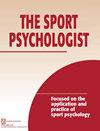Self-Expectations, Socially Prescribed Expectations, and Wellness in 14- to 15-Year-Old Athletes, Ballet, and Music Students in Norwegian Talent Schools—An Interview Study
IF 1.2
4区 心理学
Q3 HOSPITALITY, LEISURE, SPORT & TOURISM
引用次数: 1
Abstract
Talent-school settings may generate stress via demanding expectations. To investigate students representing Norway’s growing phenomenon of early adolescent talent schools, we interviewed twenty-seven 14- to15-year-old boys and girls about their experiences with self- and socially imposed expectations. Students were recruited from two sports schools (n = 14) and one school each with talent classes for ballet (n = 7) and music (n = 6). Using reflexive thematic analysis, we found four main themes representing the performers’ accounts of (a) self-oriented expectations of persistent hard work, evoking self-doubts, and never-give-up attitudes; (b) coaches’/teachers’ socially prescribed expectations, stimulating hard work, and pursuit of approval and opportunities; (c) parental expectations, reflected as helpful support, concerns of letting parents down, and negotiating independence; and (d) struggles with balancing expectations, reflected by demanding workloads, difficulties with prioritizing recovery, and ill-being. Early interventions targeting unhealthy self- and socially imposed expectations in high-expectation settings may be required to safeguard youth performers’ healthy development.挪威人才学校14- 15岁运动员、芭蕾和音乐学生的自我期望、社会规定期望和健康——一项访谈研究
人才学校的环境可能会通过苛刻的期望产生压力。为了调查代表挪威日益增长的早期青少年人才学校现象的学生,我们采访了27名14至15岁的男孩和女孩,了解他们对自我和社会强加期望的经历。学生分别来自两所体校(n = 14)和一所设有芭蕾(n = 7)和音乐(n = 6)才艺班的学校。通过反身性主题分析,我们发现了四个主要主题,代表了表演者对(a)持续努力工作的自我导向期望,唤起自我怀疑和永不放弃的态度;(b)教练/教师社会规定的期望,激励努力工作,追求认可和机会;(c)父母的期望,反映为有益的支持,让父母失望的担忧,以及谈判独立;(d)努力平衡期望,反映在繁重的工作量,难以优先考虑恢复和生病。可能需要在高期望环境中针对不健康的自我和社会强加的期望进行早期干预,以保障青年表演者的健康发展。
本文章由计算机程序翻译,如有差异,请以英文原文为准。
求助全文
约1分钟内获得全文
求助全文
来源期刊

Sport Psychologist
医学-心理学
CiteScore
2.80
自引率
6.20%
发文量
18
审稿时长
>12 weeks
期刊介绍:
TSP is a scholarly refereed journal designed as a forum to stimulate thought and disseminate knowledge that focuses on the application and practice of sport psychology. A special emphasis of the journal is on the delivery of psychological services to practitioners such as athletes and coaches. TSP is international in scope and is receptive to diverse methodologies. TSP is published for sport psychology specialists who engage in research, teaching, and/or intervention in a variety of contexts including academic, public, and private settings. The journal is also intended for practitioners such as coaches who have training and interest in sport psychology.
 求助内容:
求助内容: 应助结果提醒方式:
应助结果提醒方式:


